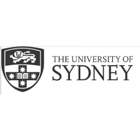- News and articles
- Find usIDP AustraliaIDP BahrainIDP BangladeshIDP CambodiaIDP CanadaIDP ChinaIDP EgyptIDP GhanaIDP Hong KongIDP IndiaIDP IndonesiaIDP IranIDP JordanIDP KenyaIDP KoreaIDP KuwaitIDP LebanonIDP MalaysiaIDP MauritiusIDP Middle EastIDP NepalIDP New ZealandIDP NigeriaIDP OmanIDP PakistanIDP PhilippinesIDP Saudi ArabiaIDP SingaporeIDP Sri LankaIDP Taiwan, ChinaIDP ThailandIDP TurkeyIDP UAEIDP VietnamIDP Corporate
- Social
- English
- Where we operate
- Courses
- Scholarships
- IELTS
- About IDP
- Student Essentials
- News and articles
- Find us
- Find us
- Find nearest IDP offices
- IDP Australia
- IDP Bahrain
- IDP Bangladesh
- IDP Cambodia
- IDP Canada
- IDP China
- IDP Egypt
- IDP Ghana
- IDP Hong Kong
- IDP India
- IDP Indonesia
- IDP Iran
- IDP Jordan
- IDP Kenya
- IDP Korea
- IDP Kuwait
- IDP Lebanon
- IDP Malaysia
- IDP Mauritius
- IDP Middle East
- IDP Nepal
- IDP New Zealand
- IDP Nigeria
- IDP Oman
- IDP Pakistan
- IDP Philippines
- IDP Saudi Arabia
- IDP Singapore
- IDP Sri Lanka
- IDP Taiwan, China
- IDP Thailand
- IDP Turkey
- IDP UAE
- IDP Vietnam
- IDP Corporate
- Social
- Language Switcher
- IDP Education /
- Colleges and Universities /
- Australia /
- The University of Sydney /
- Bachelor of Science and Mas...


Location
Australia
Qualification
Dual Degree
Fees
AUD56000
(2025)
Duration
5 Year(s)
Next intake
19 February 2026
Entry Score
7.0
IELTSCourse info
Microbiology teaches us about life forms that are too small to see with the naked eye. They are vital for life on Earth but can also cause huge problems as infectious disease agents, plant pathogens, contaminants of food and water and biofoulers. A major in Microbiology introduces you to this tremendous diversity of function and form in the microbial world. You explore the impact of microbes on other life forms, look at their role in health and disease at the level of individuals, populations and ecosystems, and in particular their place in the nexus of human, animal and environmental inter-relationships. You will investigate ways in which microbes are used to manufacture products and remediate polluted environments and explore microbial genetics and microbial life at the molecular level, with a particular emphasis on current research in Microbiology in our 3000-level units. By progressing through the major students will learn advanced concepts and methods including molecular microbiology, systems biology, genomics, transcriptomics and proteomics, advanced microscopy techniques, genetic manipulation, microbial evolution, and the use of antimicrobials and antimicrobial resistance.
- Scholarships View all scholarships
- Internships
Course fees are indicative and should be used as a guide. to get an accurate price.
Duration: 5 Year(s)
Fees: AUD56000
| Intake | Location |
|---|---|
| Semester 1 (February), 2026 | Darlington |
Entry requirements for The University of Sydney
IELTS score A minimum result of 7.0 overall and a minimum result of 6.5 in each band
TOEFL - IBT score A minimum result of 96 overall including a minimum result of 20 in Reading, Listening and Speaking and 22 in Writing
A secondary education qualification such as the NSW Higher School Certificate (including national and international equivalents), OR approved higher education study, including approved preparation courses.
Application Deadline
The application deadline isn't available Speak to an IDP counsellor for more detailed information
Further information
If you aren't eligible for the above entry requirements, you might have a chance to explore pathway options at The University of Sydney. If you want to find out more, speak to our counsellors.
THE World Ranking
61st / 1250
THE World RankingWhat our students think
We’ve haven’t received any reviews for this institution yet.
Recommended for you
- THE World Ranking:351
- Associate Degree
- Toowoomba , Australia
- Next intake:02/2026
- Entry Score: IELTS 6.0
- AUD34800 (2025)
- THE World Ranking:73
- Dual Degree
- Canberra , Australia
- Next intake:07/2025
- Entry Score: IELTS 6.5
- AUD49400 (2025)
- THE World Ranking:1201
- Bachelor Degree with Honours
- Sydney , Australia
- Next intake:02/2026
- Entry Score: IELTS 6.0
- AUD38370 (2025)
- THE World Ranking:251
- Bachelor Degree with Honours
- BENTLEY , Australia
- Next intake:07/2025
- Entry Score: IELTS 6.5
- AUD39980 (2025)
- THE World Ranking:251
- Bachelor Degree with Honours
- BENTLEY , Australia
- Next intake:07/2025
- Entry Score: IELTS 6.5
- AUD39980 (2025)
- THE World Ranking:73
- Dual Degree
- Canberra , Australia
- Next intake:07/2025
- Entry Score: IELTS 6.5
- AUD50760 (2025)
- THE World Ranking:73
- Dual Degree
- Canberra , Australia
- Next intake:07/2025
- Entry Score: IELTS 6.5
- AUD50760 (2025)
- THE World Ranking:301
- Bachelor Degree
- Sydney , Australia
- Next intake:07/2025
- Entry Score: IELTS 6.5
- AUD35280 (2025)
Your action plan
Step 1
Shortlist your courses
Choose the best three courses you’re most likely to pursue.
Step 2
Check your eligibility
Get an instant in-principle offer for courses with the IDP FastLane tag.
Step 3
Apply through IDP Live
Fill out the form once and use it to apply to multiple courses.
How does IDP FastLane work?
With the FastLane 'Offer in Principle', you'll know in minutes if you'll be accepted!
Select an institution and course
Create your academic profile
Submit your application for an 'Offer in Principle'
Your chosen institution(s) will send you a decision in minutes!
Get ready to apply with an expert counsellor




